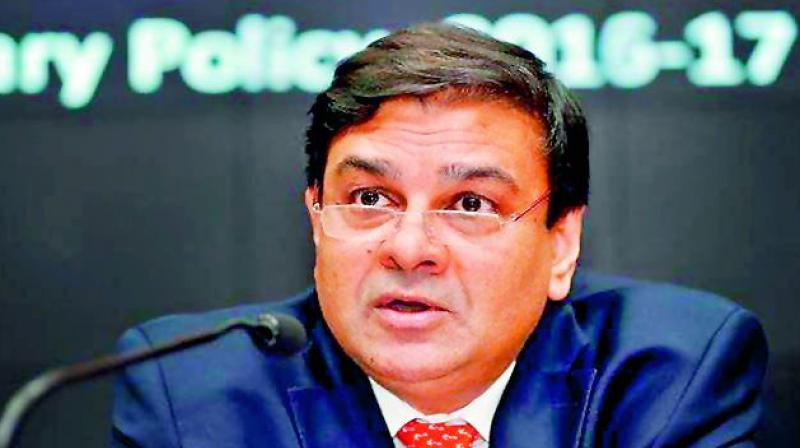Money matters: Big day for RBI, Centre ties
Just 10 out of 18 men to decide RBI's future role, and its money.

New Delhi: All eyes will be on the RBI board meeting on Monday in Mumbai to see how the intense public battle erupted out between the Narendra Modi government and the central bank plays out.
The meeting assumes significance as everyone from general public to investors will be keen to see whether the government will use its nominee on the board to force the central bank to toe its line and how governor Urjit Patel and his deputies will counter it.
While historically the board had a supervisory role, the finance ministry believes that the era “of an invisible RBI board is over.” The government seems keen to use the board to exert pressure on the RBI for policy change on issues raised by it including boost in lending.
However, despite public posturing by both sides, there are still efforts being made in background to see whether they could reach at an agreeable solution so that a negative signal was not sent to international investors about independence of the India’s central bank.
The board meeting on Monday will consider contentious issues of transfer of surplus funds to the government, easing of bad loan norms, and ease of credit supply to MSMEs. The Modi government which will be facing the Lok Sabha elections in 2019 feels that the RBI isn’t providing support to boost the economic growth, which will be crucial for it to win public support next year. However, RBI believes that fund transfers could undermine its independence and hurt the markets.
RBI’s central board currently has 18 members, which include governor Urjit Patel and his four deputies. The other 13 members are nominated by the government, incl-uding two of its officials.
The matters between Centre and the RBI have worsened after reports that the finance ministry sent letters under Section 7 (1) of the RBI Act for consultations that gives the Centre power to issue any direction to the RBI governor on matters of public interest.
“November 19 will be a day of reckoning for the central bank’s independence and the Indian economy. Nowhere in the world is the central bank a board-managed company. To suggest that private business persons will direct the governor is a preposterous idea,” said former Union finance minister P. Chidambaram.
He alleged that the government is determined to ‘capture’ the RBI in order to gain control over the reserves. “The other so-called disagreements are only a smoke screen,” added Mr Chidambaram.
Earlier this month, economic affairs secretary Subhash Chandra Garg had said that the government has not asked the RBI to transfer '3.6 lakh crore to it and Centre’s fiscal math is on track.
After the government initiated a discussion under Section 7 of the RBI Act, RBI deputy governor Viral Acharya had warned that undermining a central bank’s independence could be “potentially catastrophic”, in an indication that it is pushing back hard against government pressure to relax its policies and reduce its powers.
In returning the favour, finance Minister Arun Jaitley had hit out at the central bank for failing to check indiscriminate lending during 2008 and 2014 that has led to the present bad loan or NPA crisis in the banking industry.
Last month, RSS-affiliated Swadeshi Jagran Manch said the RBI Governor should work in sync with the government or resign. “The Reserve Bank of India Governor should work in sync with the government or otherwise resign,” SJM’s co-convener Ashwani Mahajan had said.
Former RBI governor Raghuram Rajan had recently said that board’s role historically has not been to take “operational decisions” but to focus on broader strategy as well as ensure good governance.
Dr Rajan had said that the RBI board during his tenure rarely tried to put themselves in the position of the professionals.
“So, they (board) are there to ensure that the government’s money is well spent in the RBI. For example, the RBI doesn’t pay itself inordinate salaries and so on. But also to serve as a sounding board which is why we have people from different walks of society, very eminent people,” he had said.
“So, my sense is the objective of the board is to protect the institution, not to serve others’ interest; it is to protect the health of the institution but also to provide wide, sensible advice. The aim of the board is to be Rahul Dravid — sensible, thoughtful and not, with due respect, Navjot Sidhu,” Dr Rajan had said.

